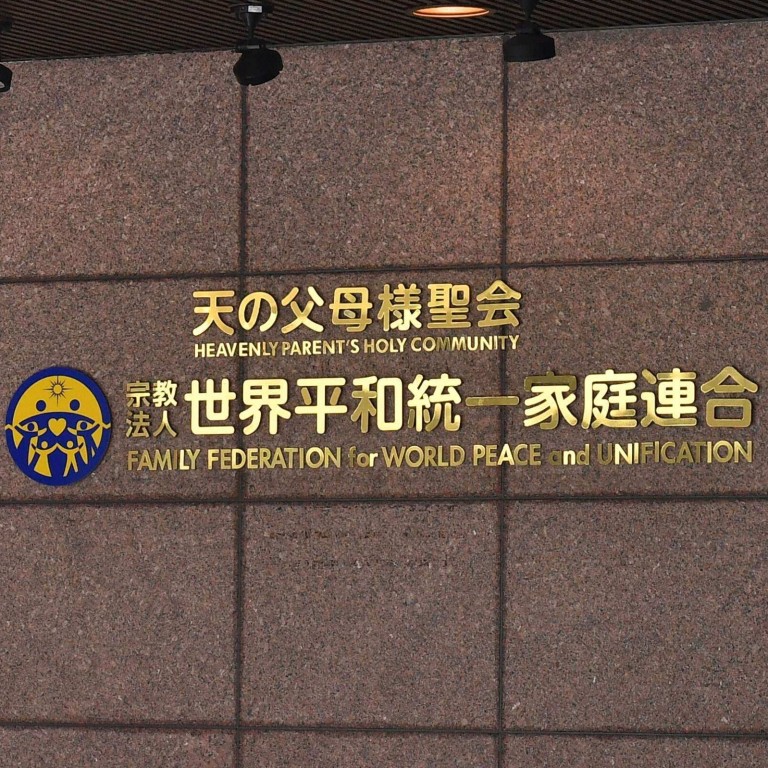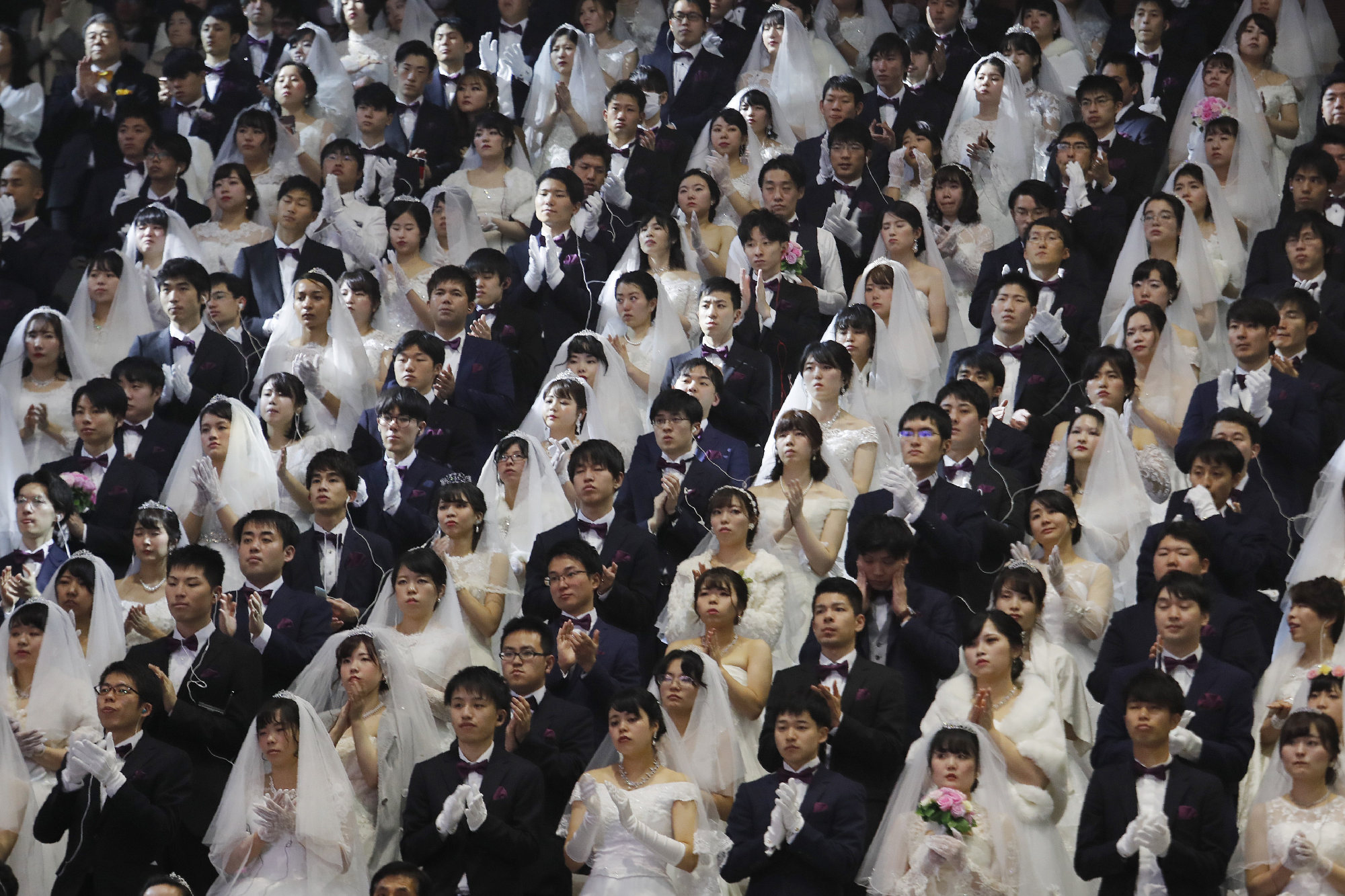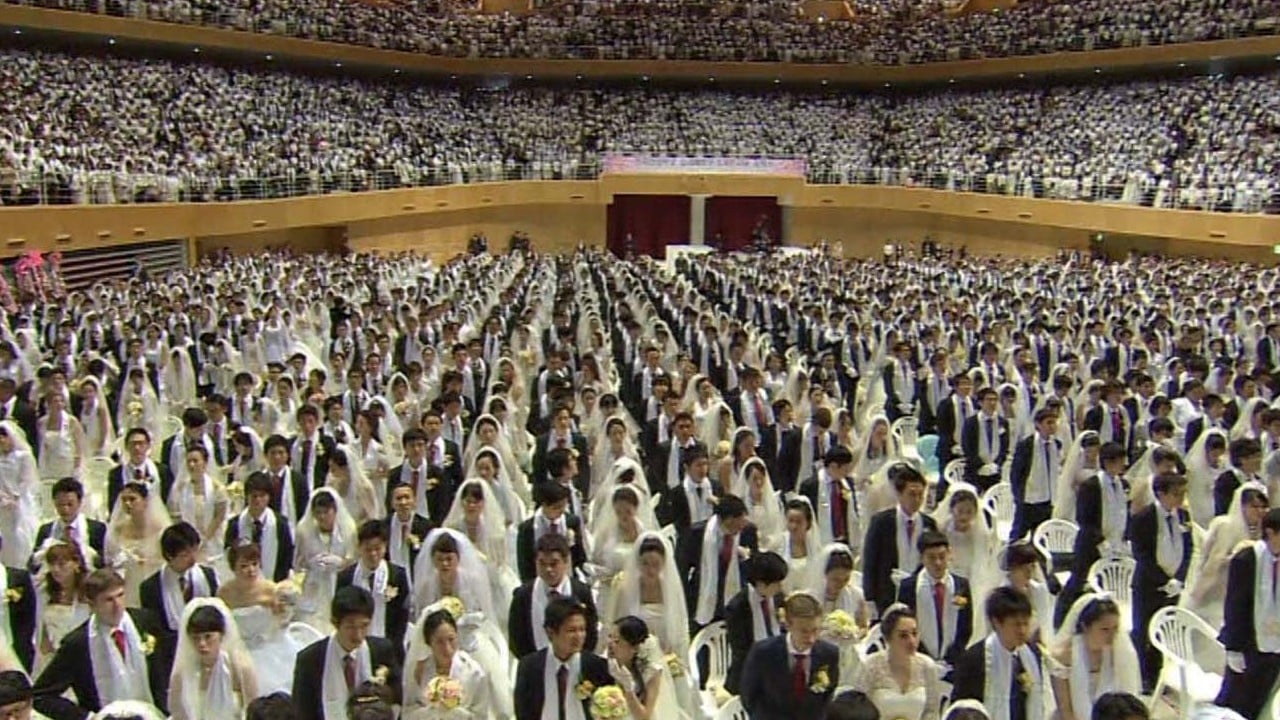
Japan probes Unification Church linked to ruling party, may revoke tax-free status
- The Japanese government intends to determine if the Unification Church coerced followers to make large donations to the religious organisation
- Links between church and lawmakers in the ruling LDP came to light after former premier Shinzo Abe was shot and killed by son of a former church member
The questions are being sent under the authority of the education and culture ministry, which is insisting replies be provided by December 9.
By exercising the “right to ask questions” – the first time the provision in the Religious Corporations Law has been used since it was enacted in 1996 – the government intends to determine if the church coerced followers to make large donations. Critics have charged that donations to the church, now formally known as the Family Federation for World Peace and Unification – took so much money from some followers that it bankrupted a number of families.
It’s not known when authorities will complete their investigation, or make a ruling on the church’s future, but the government – which has been criticised for its links to the group – will be hoping for a conclusion sooner rather than later.
Authorities have not stated when the investigation might be completed and a decision on the future of the church announced, but the government – which has been criticised for its links to the group – will be hoping to draw a line under the situation sooner rather than later.
A lawyer for the National Network of Lawyer Against Spiritual Sales emphasised that the investigation is not a criminal probe and church followers will not be stopped from worshipping, but he said: “It’s something and better late than never.”
“It’s not just about the money; people’s lives have been ruined,” said Takashi Yamaguchi, of the Link Law Office, Kito and Partners in Tokyo.
“The church has been held to account in various court cases but the government has done nothing to revoke its status as a religious corporation,” he said. “That status conveys the privilege of exemption from tax”.
Japan PM Kishida to probe Unification Church, reverses policy amid backlash
The church will continue and people will still be able to worship, he said, but revoking its tax-exempt status will make it “more difficult” to raise funds.
The Japanese government appears to be steadily building a case against the church, with legislation also proposed that would limit the amount that can be donated to religious groups. People will also be banned from taking out a loan to donate, or giving proceeds of family home sales to a religious group. The legislation also includes provisions that would allow dependent children and spouses to rescind donations made by their parents to ensure that they continue to receive support as they grow up.
Pressured “spiritual sales” will also be outlawed, including demanding that a follower purchase an item to ensure they have good fortune or good health, while it will also be illegal to not permit an individual to physically leave church premises before they make a donation.

“Followers give thanks for god’s blessings and offer donations voluntarily, based on their faith,” the official said. “However, after they left the church, they simply lied that the church forced them to donate.”
The National Network of Lawyer Against Spiritual Sales dismisses those protestations and insists the government should have acted sooner.
“For more than 30 years, neither the government nor politicians of the ruling party have done anything about the activities of the Unification Church that are devastating families,” it said in a statement on its website.
“As lawyers, we have witnessed the distress, anguish and economic sufferings of too many former members, current members’ families and ‘second-generation’ ex-members of the Unification Church, and we have long been deeply concerned with this dire reality.”
Japan eyes probe into controversial church, may dissolve religious group
Dozens of politicians have admitted to having links with the church and several ministers were forced to step down in the aftermath of Abe’s assassination.
The issue continues to hang over Kishida, however, with a poll conducted by the Mainichi newspaper revealing that 43 per cent of the public want him to “step down soon” and just 14 per cent hoping he stays in office “as long as possible.”
In reply to the poll, 71 per cent of people said a law must be enacted in the current Diet session to provide financial support to followers who were pressured into making large donations to the church.


